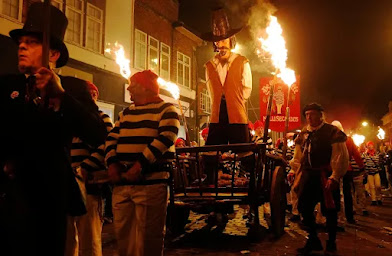Guy Fawkes and the Gunpowder Plot

Each 5 November in England on Guy Fawkes Day, we recollect
the Explosive Plot of 1605, when Guy Fawkes and individual Catholic
backstabbers endeavoured to explode Parliament and kill James I of Britain.
Everybody knows how Fawkes was trapped in the demonstration, detained, and
tormented at the Pinnacle of London and that he and the majority of his kindred
plotters experienced a double crosser's ugly demise in Westminster.
Alongside Fawkes and cousins Catesby and Wintour, the
plotters incorporated Wintour's sibling Robert, their brother by marriage John
Award, Catesby's second Cousin Francis Tresham, his worker Thomas Bates,
Fawkes' life as a youngster schoolmates Christopher and John Wright, their
brother by marriage Thomas Percy, Everard Digby, Ambrose Rookwood, and Robert
Keyes. Nobody in the gathering had a ton of experience with black powder, aside
from Fawkes, an explosives master from his tactical days. Normally he decided to set the breaker in the basements under the House of Parliament.
The arrangement practically succeeded. It was just
because of an unknown letter to the specialists, which got in late October, that the
Ruler, his family, and his Protestant pastors were not all killed. Illustrious
watchmen looked through The House of Lorde’s at 12 PM and in the early long
periods of 5 November Fawkes was found in the basements, with a breaker, a
little light, a crate of matches, and 36 ineffectively stowed away barrels of
explosive.
Fawkes was captured and taken to the Lord. At the
point when asked what he was doing in the basements, Fawkes answered strikingly:
'I wish to blow the Scottish Ruler and every one of his Scottish Masters back
to Scotland.' He likewise communicated his lament at having fizzled. Even
though offended, James I really wanted to commend the swindler's 'Roman goal'.
The 1500s and 1600s were a time of outrageous political
and strict disturbance and torment was utilized in cross-examinations to evoke
data. Indeed, even the danger of torment was in some cases to the point of
breaking a detainee's purpose. A huge number at the Pinnacle of London were
kept and some were tormented in the White Pinnacle jail vaults.
With Death, interest, mistreatment, spying, mass
homicide lastly a plot to explode Parliament. Before Guy Fawkes was discovered
in the act, a chain of occasions all over Europe prompted the Black powder Plot
of 1605. More noteworthy opportunity for Roman Catholics to revere as they
picked appeared to be impossible in 1604, yet the revelation of such a far-reaching
trick, the catch of those included, and the resulting preliminaries, drove
Parliament to consider presenting a new enemy of Catholic regulation. The
occasion likewise annihilated all trust that the Spanish could at any point get the resilience of the Catholics in Britain.
In January 1606, during the principal sitting of Parliament
since the plot, the Recognition of fifth November Act 1605 was passed, making
administrations and messages honouring the occasion a yearly element of English
life; the demonstration stayed in force until 1859. The practice of denoting the
day with the ringing of chapel chimes and huge fires began not long after the
Plot's disclosure, and firecrackers were remembered for probably the earliest
festivals.
In England, 5 November is differently called Bonfire
Night, Firecrackers Night, or Guy Fawkes Night. 5 November light shows, and
huge fire parties are normal all through England, in significant public
showcases and in confidential nurseries. Generally, in the weeks approaching
the fifth, youngsters made "folks" — representations evidently of
Fawkes — typically produced using old dresses loaded down with paper, and
fitted with an unusual veil, to be singed on the 5 November bonfire. These folks
were displayed in the road to gather cash for firecrackers, albeit this custom
has become more uncommon. The word Guy accordingly came in the nineteenth
hundred years to mean a strangely dressed individual, and consequently in the
twentieth and 21st centuries to mean any male individual.



Comments
Post a Comment